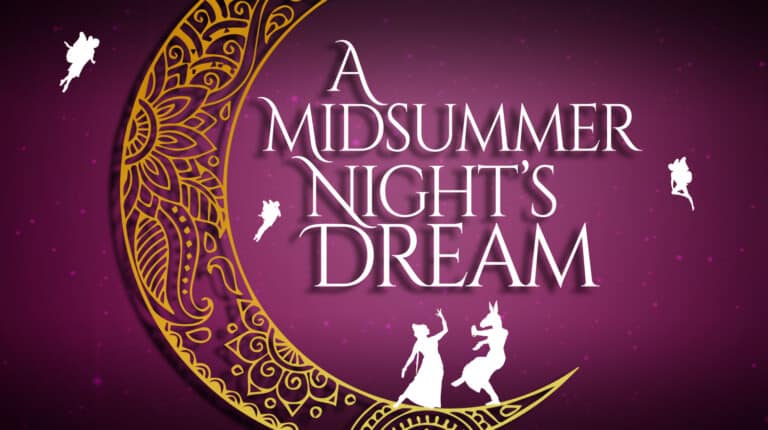Introduction
The characters are set in a given space and time. Shakespeare draws his material from a large body of social background, historical facts and myth: let us see the Greek background, the May festivities, and the fairies and spirits.
I – Greek background
The play is set in early Greece, in Athens. It is unexpected as so much of the play seems so typically England. Shakespeare was writing at the time where antiquity was the cultural reference, although the English Renaissance was more and more regarded.
But outside inspiration from Italy and Greece, Ovid, Aristofane, Plato, Aristotle were the early writers who set the norms of literature. Many of Shakespeare’s plays are set in these settings (Romeo and Juliet, Merchant of Venice, The Twelfth Night..).
The Greek setting is a serious frame of reference, which the educated audience would immediately recognize. It also provides a warranty of seriousness and sets a distance from 16th century England: it enables Shakespeare to contemplate his society while distancing it in the past, which was important because playwrights were very dependent on sponsors and political power.
This Athenian background represents order and reason, all the more appropriate as it serves to emphasize the fantastic aspect of the forest. The story of Theseus and Hippolyta refers to Plutarch and Ovid.
Theseus was famous for his adventures and exploits. He got lost in the labyrinth and was saved by Ariane. He killed the Minotaur, kidnapped Hippolyta, and tried to marry her before he eventually married Phaedra.
Considering Shakespeare’s views of the myth, the reader is not sure who Hippolyta was. In theory, she represents female power, independence. Amazons were rebels and did not accept male supremacy.
Males were considered as procreation objects and the male child was usually got ridden of. The Amazons have usurped masculine power and authority. Hippolyta is a concrete woman, she looks passive: the contrary of an Amazon. She is an example of a dominated woman (dominated by her future husband).
Although admired for his courage, Theseus was known for his betrayal of women (not an example of fidelity). The play is about fidelity and betrayal (the disorder of love): Theseus could not be faithful to one woman.
Two fathers: Egeus and Neptune. Association between a mortal and a god. It is said that his birth was the result of a female trick: dangers and complexity of love relationship.
It would be possible to interpret the forest as a labyrinth, it is a place where you can easily get lost.
II – May festivities
Feast days: Christmas, Mayday, Midsummer, harvest time. Some ambiguity about “May”: month but also the hawthorn bush (may pole) which blossoms in May.
The golden bough: in May, there was a custom to go out to the wood to cut the maypole and bring the spirits of the tree home.
For Shakespeare, there is a tradition of going to the woods and bring back flowers as a sign of fertility, luck, hope and protection. Sexual dimension in this game: “the green gown“.
Shakespeare was elaborating on a very famous theme: a night out with a ritual about vegetation, return to nature and celebration of luck.The Queen or King of May are covered with flowers.
In the play, Oberon is covered with leaves. The Lord of Misrule, Pluck, upsets the order of the ceremony and plays tricks on participants. His confusion of identity can be seen as a way of upsetting order.
This rite does not necessarily takes place in May: it is also on Midsummer night & day. Shakespeare mixes the rite of May and of Midsummer (although similar). Midsummer eve: 23rd of June. It symbolizes the triumph of light over darkness, the beginning of summer, bonfires. The fire is a protection against witchcraft, cattle diseases, all sort of evil. There are no bonfires in the play.
Notion of turning point: end of spring, beginning of summer, longest day and beginning of shorter days. Midsummer is also associated with magic, spirits would be in the air during that night.
III – Fairies and spirits
The Fairies are part of the Elizabethan folk culture. Most people believed that they did exist (especially lower classes). As for their size, we tend to imagine small spirits; the problem is Titania’s size: she is large enough to be able to hold Bottom in her arms. They have the power of curing most diseases using plants but occasionally they could also do harm.
“They step out of a tradition of infernal connections and dark deeds”. Oberon has been taken out of a Huon de Bordeaux, Titania from Ovid’s Metamorphoses (derived from Diana, connected with the moon).
Robin Goodfellow (Puck): in fact Pouke, meaning devil or demon. Puck belongs to a different background from Oberon and Titania: p.37, we learn that he is half animal and half-human, with hoofs and arms like the devil, pointed ears, and a mischievous look.
Yet, he has a neat beard and a benevolent face (opp. to the devil). Creatures resembling witches are dancing around him. He has got a huge penis: a connection with life. He holds a broom in his left hand: Puck was known to do housework at night.
l.378: “Not a mouse
Shall disturb this hollowed house
I am sent with broom before
To sweep the dust behind the door“.
Puck is half devil, famous for his tricks and pranks. Act II, sc.1: mischievous but at the same time: “they shall have good luck“.
Puck’s ambiguity is remarkable, he has a power of transformation.
Very rich background of myth and folklore that Shakespeare borrowed and re-arranged in the play. It is not gratuitous for it adds up depth in the text. It also adds the fairy dimension, the mystery of a transcendent reality.

